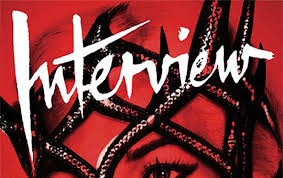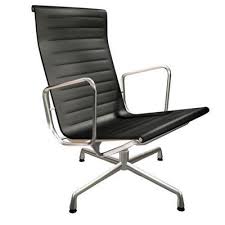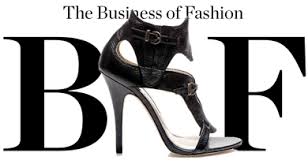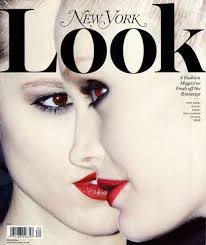 Rope is a 1948 film based on the play Rope (1929) by Patrick Hamilton and adapted by Hume Cronyn and Arthur Laurents, directed by Alfred Hitchcock and produced by Sidney Bernstein and Hitchcock as the first of their Transatlantic Pictures productions. Starring James Stewart, John Dall and Farley Granger, it is the first of Hitchcock's Technicolor films, and is notable for taking place in real time and being edited so as to appear as a single continuous shot through the use of long takes.
Rope is a 1948 film based on the play Rope (1929) by Patrick Hamilton and adapted by Hume Cronyn and Arthur Laurents, directed by Alfred Hitchcock and produced by Sidney Bernstein and Hitchcock as the first of their Transatlantic Pictures productions. Starring James Stewart, John Dall and Farley Granger, it is the first of Hitchcock's Technicolor films, and is notable for taking place in real time and being edited so as to appear as a single continuous shot through the use of long takes.The original play was said to be inspired by the real-life murder of 14-year-old Bobby Franks in 1924 by University of Chicago students Nathan Leopold and Richard Loeb who simply wanted to prove to themselves that they could commit a murder and get away with it. However, they were both arrested and received long prison terms. [...]
PLOT
Brandon (John Dall) and Philip (Farley Granger) are two young men who share a New York apartment. They consider themselves intellectually superior to their friend David Kentley and as a consequence decide to murder him. Together they strangle David with a rope and placing the body in an old chest, they proceed to hold a small party. The guests include David's father, his fiancée Janet and their old schoolteacher Rupert (James Stewart) from whom they mistakenly took their ideas. As Brandon becomes increasingly more daring, Rupert begins to suspect.
TAGLINE
The Guest Who's Dead on Time
COMMENT
[IMDb.com]
I just saw this movie for the first time this year. I was amazed. Alfred Hitchcock does an absolutely amazing job of making the audience cringe. I read reviews about this movie saying that it wasn't well accepted by the audience when it first came out. But that is understandable because a lot of great classics aren't accepted when first released. One big example is The Shawshank Redemption, which didn't do as well as it should have in the box office. That doesn't make the content or the worth of the film any less. Rope was the twisted story based on the real life murder case of Leopold-Loeb. Two college students commit the "perfect murder" and invite the friends and family of their victim over for dinner. The acting is superb, especially from everyone's favorite, James Stewart. The fear builds slowly as this movie keeps you interested by morbid discussion that everyone has thought at one time or another. This movie really did creep me out, and although it might not be as thrilling as Rear Window or North by Northwest, it will not disappoint. You will be biting your nails for sure waiting to see what happens to the seemingly "perfect murder". I would easily give this movie an 8 out of 10.
QUOTES
 Brandon: We killed for the sake of danger and for the sake of killing. We're Alive. Truly and wonderfully alive.
Brandon: We killed for the sake of danger and for the sake of killing. We're Alive. Truly and wonderfully alive. Brandon: The power to kill is just as satisfying as the power to create.
Brandon: The power to kill is just as satisfying as the power to create. Brandon: I'd hang all incompetents and fools in the world. There are far too many.
Brandon: I'd hang all incompetents and fools in the world. There are far too many. Brandon: Moral concepts of good and evil and right and wrong don't hold for the intellectually superior.
Brandon: Moral concepts of good and evil and right and wrong don't hold for the intellectually superior. Phillip (to Brandon): You, perhaps. You frighten me. You always have. From the very first day in prep school. Part of your charm, I suppose.
Phillip (to Brandon): You, perhaps. You frighten me. You always have. From the very first day in prep school. Part of your charm, I suppose. Rupert (to Brandon): By what right do you dare to say that there's a superior few to which you belong? By what right did you decide that that boy in there was inferior and could be killed? Did you think you were God, Brandon? Is that what you thought when you choked the life out of him? Is that what you thought when you served food from his grave?! I don't know who you are but I know what you've done. You murdered! You choked the life out of a fellow human being who could live and love as you never could, and never will again!
Rupert (to Brandon): By what right do you dare to say that there's a superior few to which you belong? By what right did you decide that that boy in there was inferior and could be killed? Did you think you were God, Brandon? Is that what you thought when you choked the life out of him? Is that what you thought when you served food from his grave?! I don't know who you are but I know what you've done. You murdered! You choked the life out of a fellow human being who could live and love as you never could, and never will again![Via here & here]
 THEMES
THEMES [Homoeroticism]
Rope may be considered a homoerotic movie, even though the film version never indicates that the two murderers in the film are having an affair, and Brandon says he was in a previous relationship with Janet, the girlfriend of the murdered man. However, there is no indication that the two men live apart; Phillip even has a key of his own for the Shaw apartment, and towards the end of the movie they discuss going away together for a holiday. At one point, when Janet asks where the telephone is, Brandon says "It's in the bedroom" — indicating there is only one bedroom — and she responds "How cozy!"
Even though homosexuality was a highly controversial theme for the 1940s, the movie made it past the Production Code censors; during the film's production those involved described homosexuality as "it". However, many towns chose to ban it independently, memories of Leopold and Loeb still being fresh in some people’s minds. Dall was actually gay in real life, as was screenwriter Arthur Laurents — even the piano score played by Granger (Mouvement Perpétuel No. 1 by Francis Poulenc) was the work of a gay composer. Granger, meanwhile, was bisexual. Granger’s role was first offered to another bisexual actor, Montgomery Clift, who turned the offer down, probably due to the risks of coming out in public. Cary Grant turned down the part of Rupert Cadell for similar reasons. [...]
In Hamilton’s play, the dialogue is much more homoerotic, as is the relationship between the students and their teacher. Many of these "risky" elements were removed from the script as the play was rewritten for the film. Despite this, Hitchcock managed to supply much subtext which made it past the rigorous tests of the censor.
One example is how Hitchcock makes plain the sexual nature of their relationship, as well as each character’s role, at the very start of the movie with the first lines of dialogue spoken. Directly after the murder, while both men are standing, Brandon wants to get moving to arrange the party — but Phillip, shocked and drained by what they have just done, asks if they can’t "stay this way for a minute". Brandon agrees, then lights a cigarette. This mirroring of post-coital dialog is immediately identifiable, and also indicates that Phillip’s role in the relationship is that of the submissive archetype, while Brandon’s is that of the dominant partner.
The fact that the two characters were inspired by Leopold and Loeb, who were themselves homosexual, only furthers the argument that Brandon and Philip were meant to be gay as well. [Wikipedia]
 Rope - review by Roger Ebert
Rope - review by Roger EbertALFRED HITCHCOCK called “Rope” an “experiment that didn’t work out,” and he was happy to see it kept out of release for most of three decades. He was correct that it didn’t work out, but “Rope” remains one of the most interesting experiments ever attempted by a major director working with big box-office names, and it’s worth seeing this week during its revival at the Fine Arts theaters. [...]
Hitchcock's 'Rope': A Stunt to Behold
ROPE is not exactly a picture to warm your heart, take your mom to or make out by. The Arthur Laurents screenplay, adapted from Patrick Hamilton's play, is full of the kind of self-conscious epigrams and breezy ripostes that once defined wit and decadence in the Broadway theater. "What would you say to some champagne?" Brandon asks one of his guests at the post-murder cocktail party he's giving. "Hello, champagne," says the guest.
The film is so chilly you could ice champagne in it or place it around a silver serving dish of fresh caviar. It really is the "stunt" that Hitchcock calls it in "Hitchcock," Francois Truffaut's series of interviews with him, but it looks far more interesting now than either Hitchcock or Truffaut thought 20 years ago. And, once you get in touch with its dated speech rhythms, even its archness is acceptable.
Rope is not merely a stunt that is justified by the extraordinary career that contains it, but one of the movies that makes that career extraordinary. "I really don't know how I came to indulge in (Rope)," Hitchcock said almost apologetically to Truffaut, though he then went on to describe exactly why he did:
Hitchcock was interested in seeing whether he could find a cinematic equivalent to the play, which takes place in the actual length of time of the story. To do this, he decided to shoot it in what would appear to be one long, continuous "take," without cutaways or any other breaks in the action, though in fact there would have to be a disguised break every 10 minutes, which was as much film as the camera could contain.
These breaks he usually accomplishes by having the camera appear to pan across someone's back, during which dark close-ups the film reel is changed. Not all of these disguises are equally effective, as Hitchcock himself later realized. However, his obsession with telling a story without resorting to the usual methods of montage, and without cutting from one shot to another, results in a film of unusual, fascinating technical facility, whose chilliness almost perfectly suits the subject. [...]
When I saw the film last week at the Cinema Studio, the audience collapsed with laughter at Philip's tentative suggestion that the party might be a mistake, but this was, I think, the laughter of disorientation rather than derision. There are a lot of laughs in Rope but most of these are ghoulish ones, though Mr. Granger's Philip is so distraught right from the beginning that almost everything he says or does strikes the audience as comic.
The Granger role is impossible. However, Mr. Dall is exceptionally effective as the imperious, self-assured mastermind of the couple. It's another measure of Hitchcock's wiles that, though the film was made back in the days when any suggestion of homosexuality was supposedly taboo, Rope is immediately explicit without actually committing any offenses the Production Code people could object to. Constance Collier and Sir Cedric Hardwicke add a certain classy tone to the film as, respectively, the young victim's aunt and father, but Mr. Stewart is a problem.
This, I suspect, has something to do with the role, for which he is miscast. It's a smooth performance without being believable for a minute, possibly because it seems highly unlikely that the man we see on the screen could ever have spouted the nonsense attributed to him. He's also too down-to-earth and pragmatic ever to have been intrigued by the foppish manners and mini-intellect of the murderous Brandon.
That Rope does become emotionally involving has nothing to do with character identification and everything to do with watching a cinema master at work, as he denies himself the usual tools of his trade to find out just how effective the camera can be, working more or less on its own. It swoops and pries about the set, moving from close-ups to long shots to medium shots, with a kind of studied indifference. One high point: While the guests are discussing something of no great moment just off- screen, the camera, catlike, stares at the chest as the maid gets ready to put some books back into it, unaware, of course, that the chest is already fully occupied.
Hitchcock loved to put himself, as a filmmaker, into positions as impossible as those in which he placed his characters. In some ways Lifeboat is as much of a stunt as Rope, being set entirely in a tiny lifeboat. Having made Rope, however, he never indulged himself in this way again, though he did occasionally use the long, uninterrupted take in other films, most notably in the beautiful introductory sequence of Topaz.
Rope is not an unrecognized Hitchcock masterpiece, but one cannot understand the truly bold originality of the man without seeing it. END























